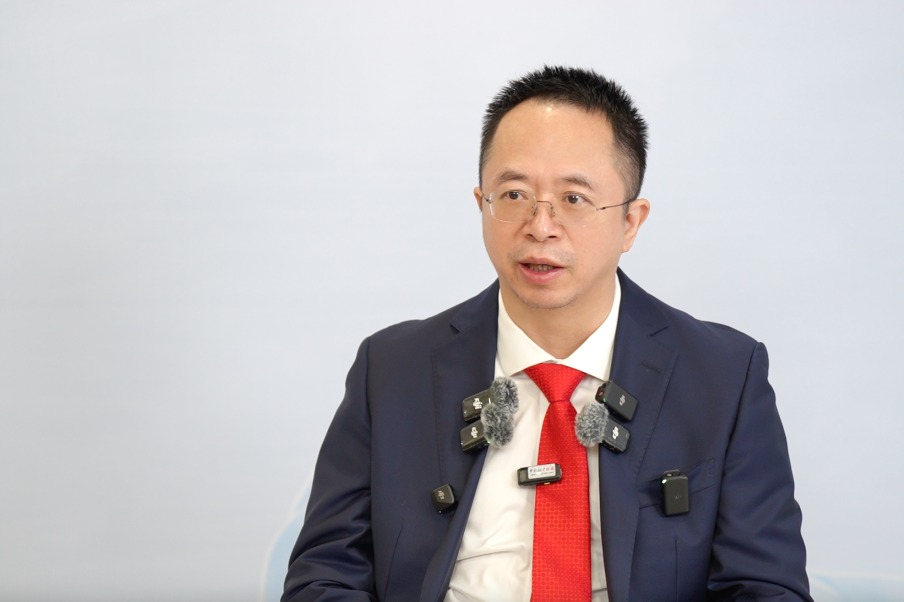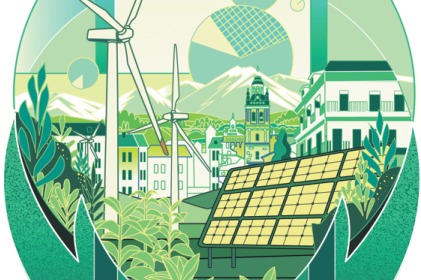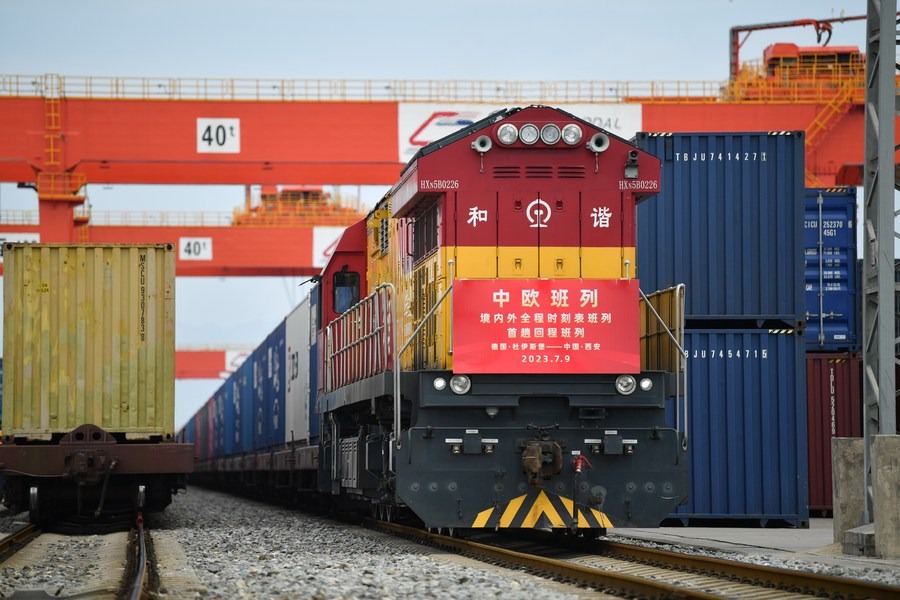Best practices
Good governance is essential for the improvement of economic prospects and the attainment of the Sustainable Development Goals


The United Nations Sustainable Development Goals are not just a nice idea. Their attainment is essential to the flourishing and, ultimately, the survival of all humanity. China can contribute greatly to achieving the SDGs and the 2030 Agenda.
In the past year, the world has faced an unprecedented once-in-a-century worldwide health crisis. More than 3 million people have lost their lives. And the novel coronavirus outbreak is not only a worldwide health crisis but an economic and humanitarian crisis that has struck all nations like a bolt of lightning, underlining many inequalities in our societies. The World Bank estimates that by the end of 2021, up to 150 million people will have been pushed back into extreme poverty as a result of the pandemic.
Through its robust response, China succeeded in largely containing the virus. Communities in China have benefited from the government's organized, structured and community-centered approach. The comprehensive testing and tracing systems used in Wuhan during early 2020 contributed to flattening the curve of infections and proved to be critical in preventing future outbreaks and clusters. In the true spirit of "leaving no one behind", special attention has also been paid to those in nursing homes, welfare institutions and mental health institutions.
Other countries now emulate elements of China's work such as community-based disease surveillance systems, triage through primary healthcare services and deployment of health workers to meet basic needs while ensuring workplace safety.
The lessons are assisting other countries in strengthening their health systems and building back stronger during their recovery phase. And despite the impact of the COVID-19 pandemic, China in 2020 finished executing one of the greatest achievements of economic development in history, transforming the lives of nearly 100 million rural poor in the last seven years as a result of targeted poverty alleviation efforts. This momentous achievement demonstrates the importance of the political will showcased by President Xi Jinping and the Chinese government.
China's successful efforts to eliminate absolute poverty in the country are, as United Nations Secretary-General António Guterres said in his letter to President Xi, "a significant contribution towards realizing a better and more prosperous world". This achievement was not simply the result of handouts but was made by providing the poorest residents with innovative means to improve and sustain their productivity and livelihoods, done largely through improving food production systems and revitalizing rural areas. To protect the gains made in poverty reduction, China is further advancing rural revitalization in its 14th Five-Year Plan (2021-25), a vision again in sync with the principle of "leaving no one behind".
Whether on this front or the cause of inequality and multi-dimensional poverty, the UN Family in China stands ready to lend its expertise in development, technical and partnership capabilities in support of the Chinese government.
The complex and interconnected challenges presented by 17 SDGs require whole-of-society approaches and solutions. No single SDG can be truly met without all being achieved. This is why the promotion of just, peaceful and inclusive societies is critical for sustainable development in our post-pandemic world.
Peace, justice and strong institutions form the basis of any nation's stability and development. This means people should be able to live free from fear of all forms of violence as they go about their daily lives and are able to depend on effective, accountable and inclusive institutions, delivering basic services to all communities equitably, to guarantee livelihoods and promote development.
The stability and improvement of economic prospects ultimately contribute to better governance. And the task of ending inequalities requires transformational change.
Gender equality is not a discrete issue that is separate from other policy areas, but an essential dimension of peace and development. We cannot advance peace and prosperity in the world without stability at home. It is high time to end the pandemic of violence against women, and break down barriers and stereotypes to elevate women to be decision-makers.
China now faces a moment of opportunity to stand on the global stage as a herald for the high frontier and a model for best practices in aligning its priorities with the 2030 Agenda. Meeting and exceeding all policy silos will require the Chinese government to implement a holistic approach. This approach will require the political commitment to build on recent successes such as poverty reduction, inequality elimination and the normative agenda to truly deliver on the level of ambition set by President Xi.
With the world in the midst of a climate emergency, China's pledge to achieve peak emissions before 2030 and achieve carbon neutrality before 2060 perhaps best represents the nature of these ambitious yet necessary undertakings. Economic development, employment creation, consolidating the poverty-elimination achievements and better protecting the environment must all be pursued concomitantly and in an integrated manner. And, most importantly, China's international cooperation efforts must reflect the full force of its existing commitments to the values of multilateralism and global governance.
China's acceleration of agricultural development through continued and SDG-aligned investments in South-South cooperation and the Belt and Road Initiative is of great hope for poverty reduction throughout the Asia-Pacific, Africa and other regions. Its full participation in global forums such as the upcoming Food Systems Summit, the COP 15 UN Biodiversity Conference in Kunming and the COP 26 UN Climate Change Conference in Glasgow presents additional opportunities to renew global institutions for the achievement of all SDGs.
These actions and more with support from the UN Family in China represent the new modalities of engagement needed in this decade of action. Commenting on China's poverty reduction achievements, President Xi said, "Being lifted out of poverty is not an end in itself but the starting point of a new life and a new pursuit." That pursuit is also the essence of SDGs.
The author is UN resident coordinator in China. The article is a keynote speech at the he Second Think-Tanks Forum on National Governance in Developing Countries. The author contributed this article to China Watch, a think tank powered by China Daily. The views do not necessarily reflect those of China Daily.
































